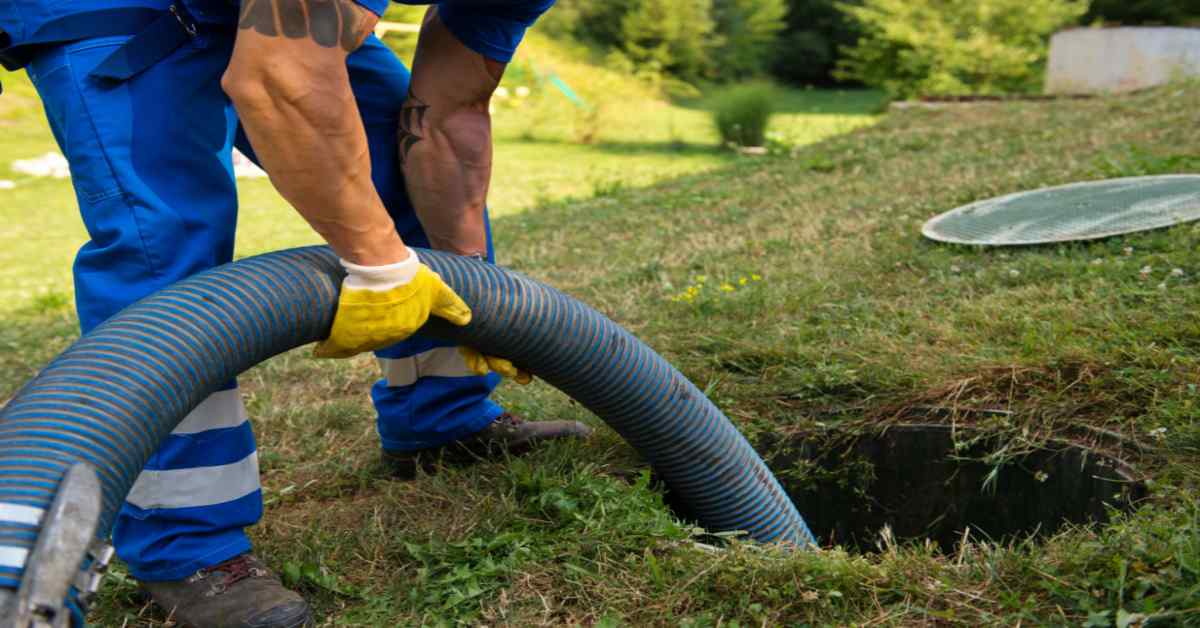
A septic tank is an essential component of many homes, managing wastewater efficiently. Proper septic tank maintenance ensures a healthy system, avoids costly repairs, and protects the environment. In this guide, we’ll walk you through the basics of septic tank cleaning in Atlanta and maintenance to keep your system functioning at its best.
Why Is Septic Tank Maintenance Important?
Neglecting your septic system can lead to unpleasant consequences such as backups, foul odors, or even system failure. Proper maintenance extends the life of your septic tank, reduces repair costs, and minimizes environmental risks. By staying proactive, you’ll ensure that your home’s wastewater is treated safely and efficiently.
Signs Your Septic Tank Needs Cleaning
-
Slow Draining Fixtures: If sinks, tubs, or toilets are draining slowly, it could indicate a full septic tank.
-
Foul Odors: A strong sewage smell around your property is a clear sign of trouble.
-
Pooling Water: Water accumulating in your yard near the drain field suggests the tank may be overflowing.
-
Lush Grass: Overly green or healthy grass above the septic system may indicate leaks or an overfilled tank.
-
Sewage Backup: Wastewater backing up into your home is a critical sign that cleaning is overdue.
How Often Should You Clean a Septic Tank?
Most septic tanks require pumping every 3 to 5 years. The frequency depends on:
-
Household Size: More people mean more wastewater production.
-
Tank Size: Larger tanks can handle more waste and may need less frequent cleaning.
-
Water Usage: High water usage increases the load on your system.
-
Garbage Disposal Use: Frequent use adds solid waste to the tank, requiring more frequent cleaning.
Consult a septic professional to determine the ideal schedule for your system.
Step-by-Step Guide to Septic Tank Cleaning
1. Locate Your Septic Tank
The first step is identifying the exact location of your septic tank. Check your property’s layout or consult a professional if you’re unsure. Tanks are typically buried underground and may have a lid or access point visible above the ground.
2. Inspect the System
Before cleaning, inspect your system for damage or leaks. Look for cracks in the tank, clogged pipes, or issues in the drain field. Early detection of problems can save you money on repairs.
3. Hire a Professional Septic Pumping Service
While some maintenance tasks can be done yourself, licensed professionals should always handle septic tank pumping. They have the equipment and expertise to remove waste safely and efficiently. Professionals will:
-
Open the tank’s lid.
-
Pump out sludge, scum, and liquid waste using specialized equipment.
-
Inspect the tank for damage or blockages.
4. Maintain the Drain Field
The drain field is where treated wastewater is dispersed into the soil. To maintain its efficiency:
-
Avoid parking vehicles or heavy equipment over the drain field.
-
Ensure proper landscaping to prevent roots from damaging pipes.
-
Divert rainwater away from the area to avoid oversaturation.
5. Monitor Water Usage
Reduce stress on your septic system by conserving water. Simple steps include:
-
Fixing leaky faucets and pipes.
-
Using energy-efficient appliances.
-
Spacing out laundry and dishwashing tasks to avoid overloading the system.
6. Avoid Flushing Non-Biodegradable Items
Only flush toilet paper and human waste. Items like wipes, feminine hygiene products, and grease can clog your system and lead to costly repairs.
DIY Septic Tank Maintenance Tips
While professionals handle cleaning, homeowners can take steps to maintain their system between services:
-
Use Bacteria Additives: Add septic-safe bacteria products to promote waste breakdown.
-
Monitor the Tank Lid: Ensure it remains sealed properly to prevent debris or water infiltration.
-
Conduct Routine Inspections: Look for early signs of wear or leaks.
Common Septic Tank Cleaning Mistakes to Avoid
-
Skipping Regular Cleaning: Ignoring your tank can lead to blockages and system failure.
-
Using Chemical Drain Cleaners: Harsh chemicals can kill beneficial bacteria in your tank.
-
Flushing Improper Items: Non-biodegradable waste creates clogs and increases pumping frequency.
-
Overloading the System: Excessive water use strains your tank and may lead to overflow.
Benefits of Regular Septic Tank Cleaning
-
Prevents Costly Repairs: Regular maintenance avoids major issues that can lead to expensive fixes.
-
Protects Your Home: A clean system reduces the risk of backups and damage to your property.
-
Eco-Friendly: Properly maintained tanks treat wastewater effectively, minimizing environmental impact.
-
Improves System Lifespan: Routine cleaning extends the life of your septic system, saving you money in the long run.
Final Thoughts
Proper septic tank cleaning and maintenance are essential for a healthy and efficient system. By recognizing the signs of a full tank, scheduling regular cleanings, and following preventive measures, you can avoid costly repairs and ensure your system operates smoothly. When in doubt, always consult a professional to handle septic pumping and inspections.
Take proactive steps today to protect your home, your wallet, and the environment!